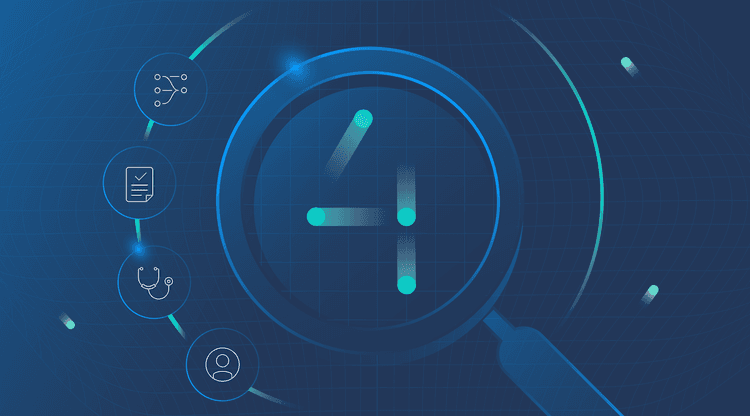Better care begins
with accurate advice
Intelligent care navigation, powered by Ada.
Ada's AI-powered symptom assessment and care navigation technology to...
Improve
capacity by educating patients,
reducing unnecessary encounters
and freeing up clinician time.
Streamline
experiences by navigating
patients to appropriate and
cost-effective services.
Automate
access and reduce the
demand on triage nurses
and call centers.
Ada's AI supports thousands of conditions and is proven to be safe and, accurate in the real world and published research.
Most importantly, it's easy to use to ensure maximum user adoption.
With 35 million assessments already completed around the world, Ada has earned the trust of both patients and clinicians.
Ada's impact includes...
40%of patients are directed to lower urgency care
62%of uncertain patients are guided to a care choice
13%reduction in patient's waiting time
17%more consultations delivered
 Case study: Sutter Health, powered by Ada
Case study: Sutter Health, powered by Ada
Ada worked with Sutter Health to help over 400,000 patients to navigate their care network. Together we supported patients to safely access lower acuity services, steer away from same-day settings, and utilize more cost-effective care.
Read case study
 Intelligent symptom assessments
Intelligent symptom assessments
Designed to mimic the thinking of human physicians, Ada supports patients' care journeys 24/7.
- Provide trusted medical advice that's up to 3x more accurate than others and safety on par with GPs.1
- Help patients understand their symptoms and needs, with up to 3x more conditions covered.1
- Dynamic conversational AI helps patients understand symptoms. 97% of patients agree that Ada is easy to use.2
Features: Client-branded | 3,600 conditions, inc. rare, pediatric, obstetric, and mental health | 10,000+ symptoms and risk factors | Billions of symptom constellations | Easy web, app, and portal integration | Simplified language | Patient-friendly report | SSO for seamless UX | Bi-weekly optimizations.
Request a demo
 Smart, configurable care navigation
Smart, configurable care navigation
Helps you better triage patients to the right care for their acuity and needs.
- Guide to appropriate services or self-care with advice safety on par with human triage nurses.3
- Increase utilization of cost-effective services like telehealth and reduce network leakage.
- Support primary care and call center capacity and efficiency.
Features: 8 acuity levels from self-care to emergency | Offer customized questions | Measure user intent | Navigate based on acuity level or condition | Integrate with scheduling systems | Signpost to any appropriate service or resource.
Request a demo
 Detailed clinical handover
Detailed clinical handover
Provide clinicians additional context and enhance the patient-doctor experience.
- Give doctors a clinical summary for more informed time with patients. Saving over 1 minute in 52% of consultations.4
- Help patients articulate their concerns. 90% of patients said Ada improves rapport with HCPs.5
- Highlight less common conditions or symptoms that the practitioner may consider in their diagnosis.
Features: Secure EHR or CRM integration using FHIR | Share report via EHR, CRM, email, or as PDF | Configurable consent | Linked to 31,000+ ICD-10 codes for accurate reporting and billing | Receive reports in a different language to assessment.
Request a demo
 Actionable insights
Actionable insights
View aggregated anonymized data in near real-time.
- Inform operational decisions, service planning, and population health.
- Identify trends, risks, gaps in care, and opportunities for improvement.
- Monitor the impact of marketing activity on engagement and adoption.
Features: Track common symptoms, risks, and conditions | Capture patient demographics and care decisions | Advice, service selection, conversion, and satisfaction data across population | Feedback loops and SSO offer richer insights.
Request a demo
Trusted by clinicians
94% agree that Ada's advice was safe and appropriate4
83% of Ada's top suggestions match physician's diagnosis4
73% said Ada improved rapport with patients5
93% agreed Ada provided useful information prior to consultation4
Ada's technology is:
- Developed and managed by doctors for superior medical quality.
- Fully explainable AI and heavily tested for safety.
- Validated with real-world research and peer-reviewed studies.
- Classified as a Class IIa medical device in the EU.
- Complies with relevant medical device regulations and security standards and follows the highest data protection standards: EU-MDR, ISO 27001, ISO 13485, HIPAA, and GDPR.
What our partners say
Read more
Disclaimer: Ada Assess is not a substitute for advice from a healthcare professional and does not provide a final medical diagnosis.
Gilbert, S. et al. (2020). How accurate are digital symptom assessment apps for suggesting conditions and urgency advice? A clinical vignettes comparison to GPs. BMJ Open.
Miller, S. et al (2020). Patients’ Utilization and Perception of an Artificial Intelligence–Based Symptom Assessment and Advice Technology in a British Primary Care Waiting Room. JMIR Human Factors.
Morse, K. et al (2020). Use Characteristics and Triage Acuity of a Digital Symptom Checker in a Large Integrated Health System: Population-Based Descriptive Study. J Med Internet Research.
Active post-market surveillance research with Ada clients (2023). AI-based Symptom Assessment as the Digital Front Door to Care and to Enhanced Physician/Patient Interaction: Real-World Evidence from Portugal and the Netherlands.
Scheder-Bieschin, J. et al (2022). Improving emergency department patient-doctor conversation through an artificial intelligence symptom taking tool: an action-oriented design pilot study. JMIR Formative Research.

.png%3Ffit%3Dclip%26h%3D280%26w%3D1372%26q%3D90&w=750&q=70)



















